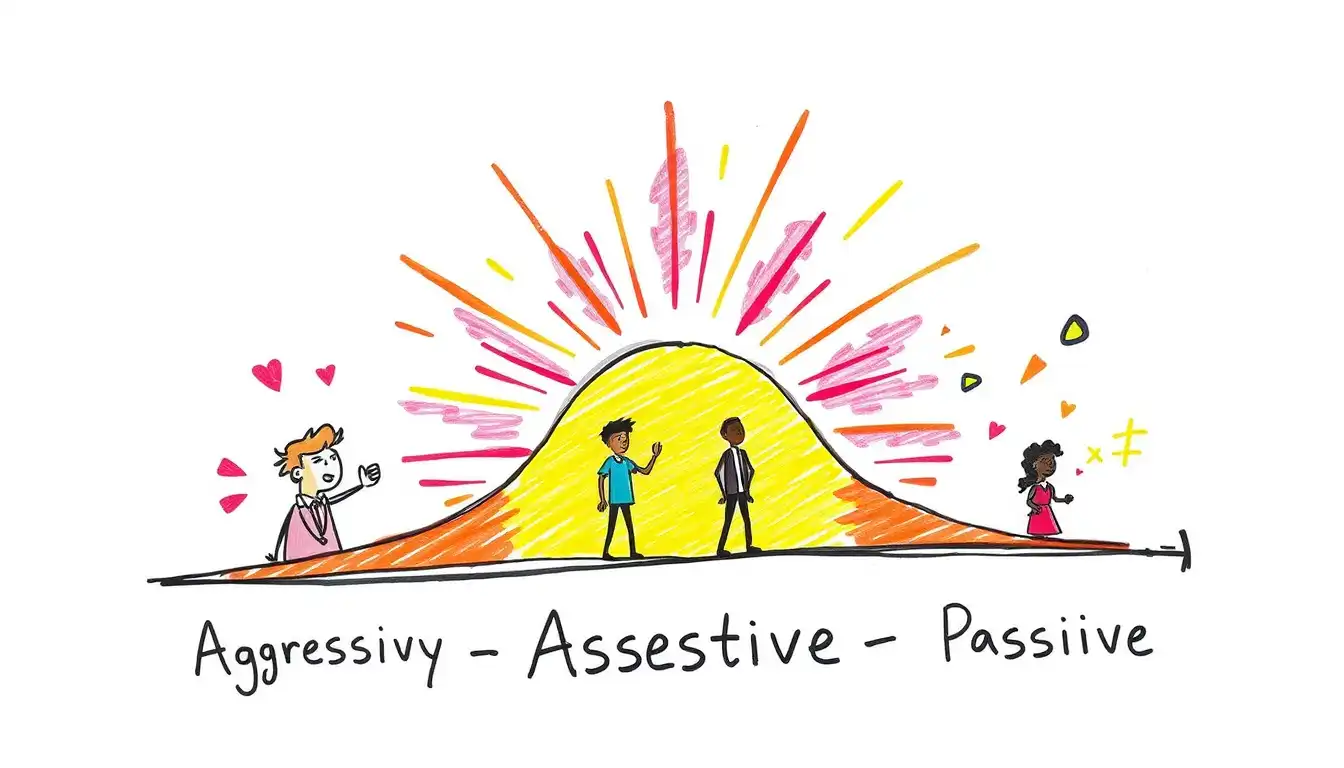Understanding Emotional Intelligence
Emotional intelligence refers to the ability to recognize, understand, and manage both our own emotions and the emotions of others. It involves being aware of how emotions impact our thoughts and behaviors, and being able to navigate social interactions effectively. Individuals with high emotional intelligence tend to have better interpersonal relationships and are often more successful in both personal and professional contexts.
Developing emotional intelligence involves cultivating self-awareness, which is the ability to recognize and understand our own emotions, triggers, and behavioral patterns. This self-awareness allows us to better regulate our emotions and responses, leading to improved decision-making and communication. Additionally, emotional intelligence entails being able to empathize with others, accurately perceive their emotions, and respond in a supportive and constructive manner. By honing these skills, individuals can enhance their relationships, collaborate more effectively, and navigate various social situations with greater ease.
Recognizing the Importance of Assertiveness
Assertiveness plays a crucial role in our personal and professional lives. It involves confidently expressing our thoughts, feelings, and needs while respecting the rights of others. By being assertive, we can effectively communicate our boundaries, preferences, and opinions, which in turn can lead to healthier relationships and increased self-confidence.
Individuals who lack assertiveness may struggle to have their voices heard, leading to feelings of resentment, frustration, and powerlessness. Conversely, those who are excessively aggressive may disregard the feelings and perspectives of others, causing conflict and alienation. Recognizing the importance of assertiveness allows us to strike a balance between passivity and aggression, enabling us to communicate assertively in various situations and navigate social dynamics with greater ease.
Developing Self-Awareness
Self-awareness is the foundation of emotional intelligence. It involves understanding one’s own emotions, thoughts, and behaviors. By being self-aware, individuals can recognize their strengths and weaknesses, allowing them to make informed decisions and navigate challenges effectively. Self-aware people are in tune with their inner world, which enables them to better regulate their emotions and interactions with others.
Developing self-awareness requires reflection and introspection. It involves being honest with oneself and acknowledging areas for growth. By practicing mindfulness and paying attention to their thoughts and feelings, individuals can deepen their self-awareness. Cultivating self-awareness is a continuous process that requires self-reflection and a willingness to explore one’s own beliefs, values, and motivations.
Practicing Self-Regulation
Self-regulation is a fundamental component of emotional intelligence. It involves managing and controlling one’s emotions and impulses in various situations. This skill allows individuals to stay composed and rational, even when faced with challenging or stressful circumstances. By practicing self-regulation, individuals can avoid impulsive reactions and make more thoughtful decisions.
Developing self-regulation requires self-awareness and mindfulness. It involves recognizing one’s emotional triggers and learning how to respond to them in a constructive manner. Techniques such as deep breathing, positive self-talk, and taking short breaks can help individuals regulate their emotions effectively. By mastering self-regulation, individuals can navigate interpersonal relationships more successfully and navigate various social situations with poise and confidence.
Improving Social Skills
Improving social skills is key in navigating various social interactions successfully. It involves being able to engage with others effectively, convey messages clearly, and understand social cues. Social skills include listening attentively, maintaining eye contact, and showing empathy towards others. by practicing active listening, you can show others that you value and respect their perspectives, ultimately fostering stronger connections.
In addition to active listening, another important aspect of improving social skills is being able to engage in meaningful conversations. This entails being able to express your thoughts and ideas articulately, as well as being open to different viewpoints. By being an active participant in conversations, you can cultivate positive relationships and create a supportive social network.
• Active listening is a key component of improving social skills
• Maintaining eye contact shows attentiveness and respect during conversations
• Showing empathy towards others helps to build stronger connections
• Engaging in meaningful conversations involves expressing thoughts clearly
• Being open to different viewpoints can lead to positive relationships
Building Empathy
Empathy is the ability to understand and share the feelings of others. It involves putting yourself in someone else’s shoes and seeing the world from their perspective. Building empathy requires active listening and the ability to recognize and validate the emotions of others. When we practice empathy, we create deeper connections with those around us and foster a sense of understanding and compassion.
One way to build empathy is to practice active listening. This means giving someone your full attention when they are speaking, without interrupting or thinking about your response. By truly listening to others, we show that we value their thoughts and emotions, which in turn helps us better understand their experiences and feelings. Additionally, asking open-ended questions and reflecting back what someone has said can further demonstrate empathy and strengthen our relationships with others.
Enhancing Communication Skills
Communication skills are crucial for fostering healthy relationships and effective interactions in all aspects of life. One key aspect of enhancing communication skills is active listening. By truly listening to others without interrupting or formulating a response while they speak, we can show respect and understanding, leading to clearer and more meaningful conversations.
Another important factor in improving communication skills is practicing clear and concise expression. Being able to articulate thoughts and feelings in a way that is easy to understand helps avoid misunderstandings and promotes a more productive exchange of ideas. Using simple and direct language, as well as focusing on the main points, can make our communication more impactful and successful.
Setting Boundaries
Setting boundaries is an essential skill in maintaining healthy relationships and preserving one’s well-being. It involves clearly communicating one’s needs, values, and limits to others in a respectful manner. Setting boundaries allows individuals to define their personal space and establish guidelines for how they wish to be treated by others.
Without clear boundaries, individuals may find themselves feeling overwhelmed, taken advantage of, or disrespected in their interactions with others. By setting and enforcing boundaries, individuals demonstrate self-respect and establish healthy parameters for their relationships. This practice fosters mutual understanding, respect, and overall well-being in both personal and professional settings.
Handling Conflict Effectively
Conflicts are a natural part of human interactions and can arise in various areas of life. When faced with conflict, it is essential to approach the situation with a calm and rational mindset. Emotions can often escalate tensions and hinder productive resolution, so taking a moment to breathe and collect your thoughts can make a significant difference in how the conflict unfolds. It is important to actively listen to the other party’s perspective, showing empathy and understanding even if you may not agree with their viewpoint. This can help create a more open and respectful dialogue, paving the way for finding common ground and resolving the conflict amicably.
In dealing with conflicts, it is crucial to communicate your thoughts and feelings assertively but respectfully. Avoid resorting to passive-aggressive behavior or aggression, as this can further escalate the situation. Expressing your concerns clearly and directly, using “I” statements to convey how you feel without placing blame, can foster a more constructive conversation. Additionally, focusing on finding mutually beneficial solutions rather than solely defending your own position can lead to a more positive outcome. By approaching conflict with a willingness to listen, understand, and work towards a resolution, both parties can navigate disagreements effectively and maintain healthy relationships.
Implementing EQ Strategies in Daily Life
To incorporate emotional intelligence strategies into your daily life, it’s crucial to start by practicing self-awareness and self-regulation. Begin by reflecting on your emotions and understanding their triggers. By being mindful of your emotions, you can better manage them and respond in a more controlled manner. This can help prevent impulsive reactions and allow you to make more thoughtful decisions.
Building empathy and enhancing your communication skills are also essential components of implementing emotional intelligence strategies daily. Empathy involves putting yourself in someone else’s shoes and understanding their feelings and perspective. By improving your ability to empathize with others, you can foster stronger relationships and better connect with those around you. Effective communication is key to expressing your emotions clearly and understanding others, leading to more meaningful interactions and less misunderstandings.
What is Emotional Intelligence (EQ)?
Emotional Intelligence, or E
Why is assertiveness important for emotional intelligence?
Assertiveness allows us to communicate our needs and boundaries effectively, which is crucial for healthy relationships and emotional well-being.
How can I develop self-awareness?
Developing self-awareness involves reflecting on your thoughts, feelings, and behaviors, as well as seeking feedback from others to gain a better understanding of yourself.
What are some ways to practice self-regulation?
Self-regulation involves managing your emotions and impulses. Techniques like deep breathing, mindfulness, and positive self-talk can help you regulate your emotions effectively.
How can I improve my social skills?
Improving social skills involves actively listening, expressing empathy, and engaging in effective communication with others.
Why is empathy important for emotional intelligence?
Empathy allows us to understand and connect with others on an emotional level, fostering stronger relationships and communication.
What are some ways to enhance communication skills?
Enhancing communication skills involves being a good listener, using nonverbal cues effectively, and practicing clear and assertive communication.
How can I set boundaries to improve emotional intelligence?
Setting boundaries involves communicating your needs and limits clearly, and respecting the boundaries of others, which is essential for healthy relationships.
How can I handle conflict effectively?
Handling conflict effectively involves staying calm, listening actively, and working towards a mutually beneficial solution with the other party.
How can I implement EQ strategies in my daily life?
Implementing EQ strategies in daily life involves practicing self-awareness, self-regulation, empathy, and effective communication in your interactions with others. Consistent practice and reflection are key to developing emotional intelligence.







Leave a Reply